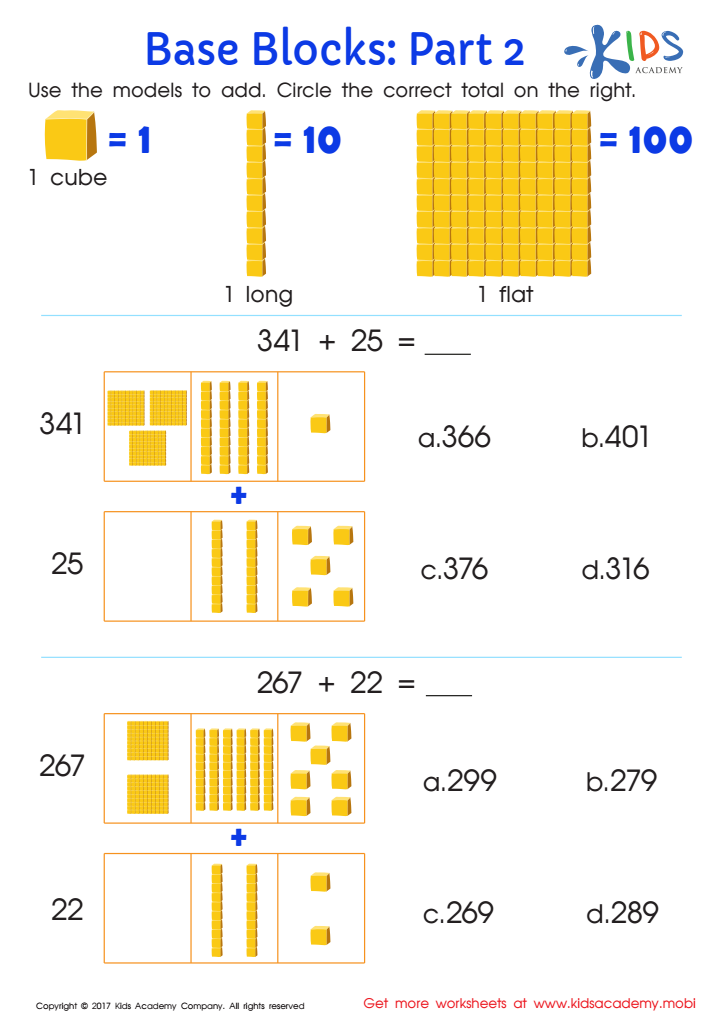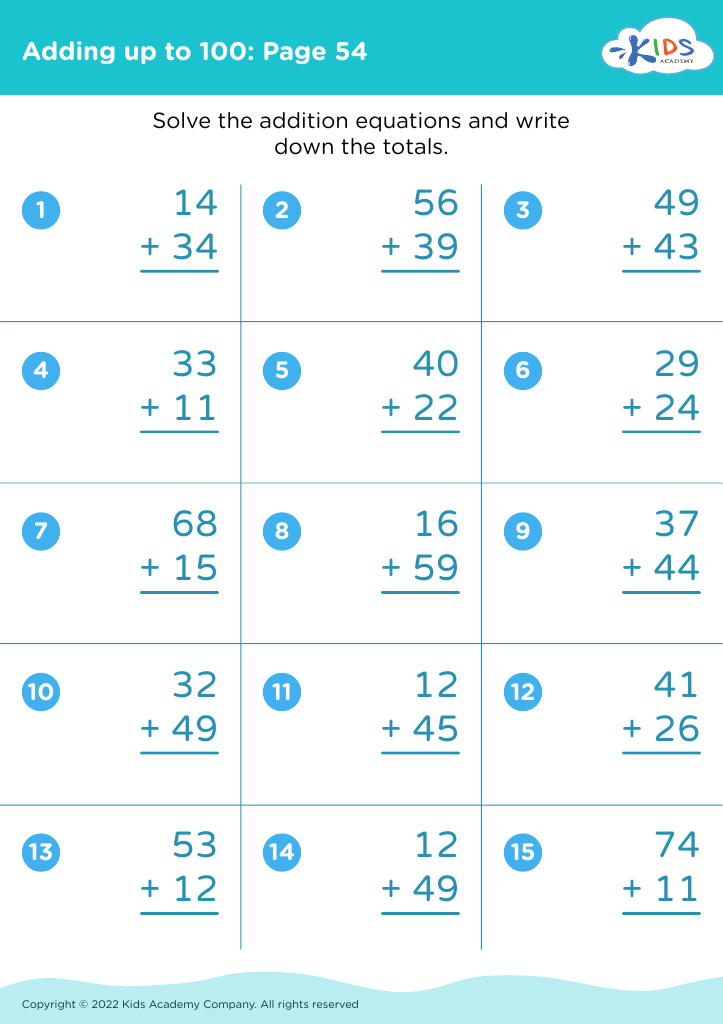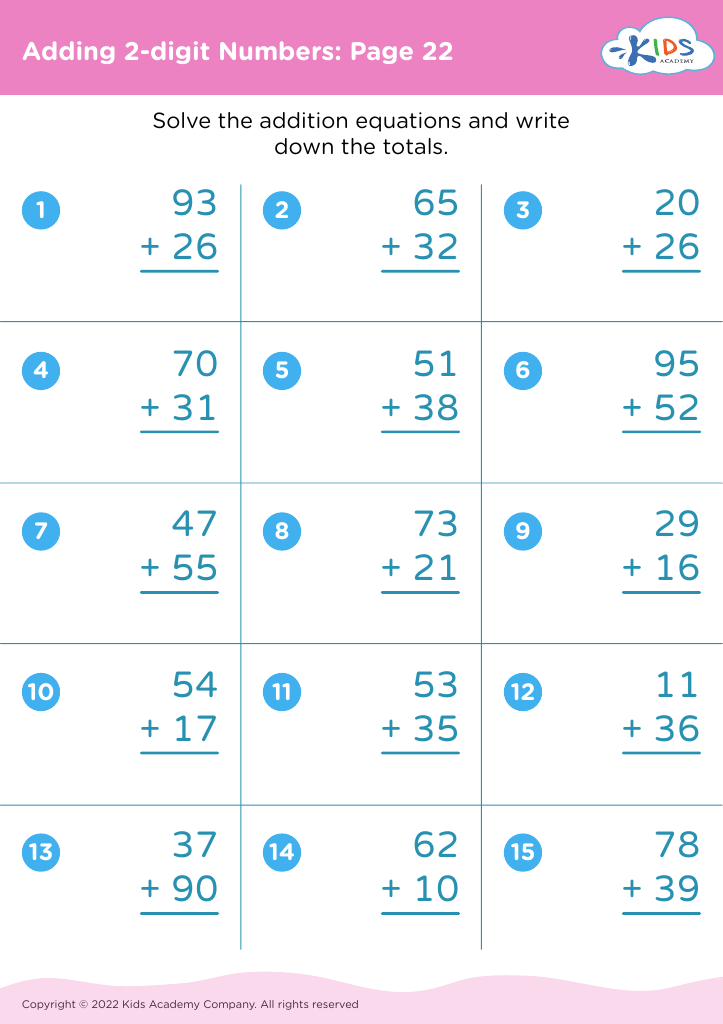Practice addition Addition Worksheets for 8-Year-Olds
5 filtered results
-
From - To
Looking for engaging and educational practice addition worksheets for 8-year-olds? Our collection is designed to enhance math skills, build confidence, and make learning fun! Tailored for young learners, these worksheets cover essential addition concepts through interactive, age-appropriate exercises. Perfect for at-home practice or classroom use, they help students progress at their own pace. Download and print the worksheets to turn math practice into an enjoyable experience. With a variety of problems and dynamic activities, children will improve their addition abilities while having a great time. Boost your child's confidence and math proficiency with our practical worksheets!


Base Ten Blocks Worksheet: Part 2
Parents and teachers should care about practicing addition with 8-year-olds because foundational math skills are critical at this developmental stage. At this age, children are typically in second or third grade, a period when they consolidate basic arithmetic concepts that will underpin all future math learning. Regular practice of addition helps solidify number sense, an essential skill that ensures children understand the relationships between numbers.
Mastering addition boosts confidence and reduces anxiety related to math, making students more willing to tackle complex problems later on. Strong addition skills directly affect a child’s ability to learn subtraction, multiplication, and division, and are closely tied to everyday activities like telling time and handling money, thus preparing them for real-world scenarios.
Moreover, consistent practice sharpens problem-solving and critical-thinking skills. It supports the development of cognitive abilities such as memory and logical reasoning. Reinforcing addition skills at this age helps close gaps and prevents long-term challenges in the math learning continuum.
Engaging parents in their child’s learning journey strengthens the parent-child bond and encourages positive attitudes towards education. For teachers, regular addition practice can contribute to a well-rounded curriculum, promoting student success and academic growth. In sum, focusing on addition creates a robust mathematical foundation, paving the way for future achievement in academic and everyday contexts.



 Assign to My Students
Assign to My Students

















